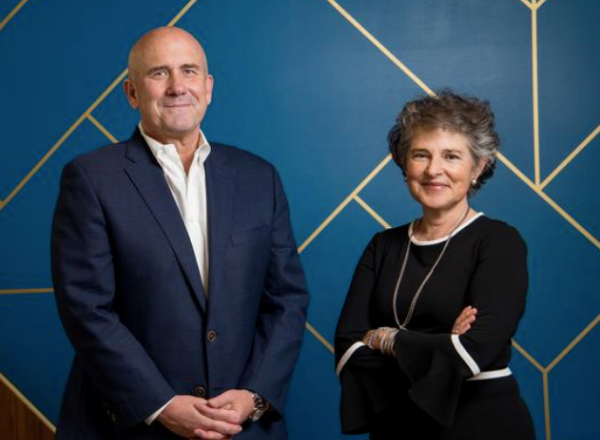News & Awards.
including honors for “Best Mixed Use,”
“Best Office,” and “Best Historic Rehabilitation”.

Sometime next summer, TMG Partners plans to start construction on a 27-story, 875,000-square-foot tower near the intersection of Telegraph and Grand avenues in Oakland.
Next door, Kaiser Permanente will build out Thrive Center, a 1.6 million-square-foot regional and national headquarters set to break ground early next year. Nearby, at 2225 Telegraph Ave., construction crews are working on the upcoming 173-room Moxy Hotel.
The $1 billion-plus of investment has made the Uptown neighborhood a development hotspot, one of several in a city that is now welcoming billions of dollars from institutional investors who have previously shunned it.
“Five years ago, we would call investors and say, ‘We’re doing a project in Oakland,’ and they would say, ‘Oakland is tough for us,’” said David Cropper, director of development at TMG Partners. “Now Oakland is as legitimate as it gets.”
It’s not the first time that a development swell has lifted Oakland, but the city has in the past struggled to maintain that momentum in the absence of the pension funds, insurance companies and private equity firms that are mainstays of real estate investment.
As Cropper puts it: “It’s different this time.”
Oakland’s renaissance is now well advanced. Home values, household income, total population and jobs are all increasing. The city has carved out a niche as a vibrant hub of dining, culture and nightlife. Public safety — long an issue for potential tenants and investors — has receded as an urgent concern. The current city administration, in contrast to some of its predecessors, has developed a reputation for competence.
“Investment is different than I’ve ever seen it in Oakland,” said Michael Ghielmetti, head of Signature Development, which has been investing in Oakland for more than 20 years. “The size of the projects are larger than I would have thought 10 years ago. Besides that, there’s more volume and velocity of projects.”
“Those of us who have been in Oakland have always believed in the future of Oakland,” Ghielmetti said. “It’s just happening faster because of the acceptance of global capital.”
The new money
Some of the new players come backed with massive portfolios: KKR with more than $208 billion of assets under management; New York Life Real Estate Investors with $257 billion of assets under management; Starwood Capital Group with $29 billion of assets under management; KBS Capital Advisors with $11.6 billion in assets under management; and Goldman Sachs, with more than $1.6 trillion of assets under management.
“Investors want to know, who else is investing?” Cropper said. “There is a herd mentality for investors. It does get easier to attract capital.”
New developers have also dove in during the past decade such as Holland Partners, Anton DevCo., Zarsion America and Carmel Partners.
Just five years ago, Madison Park Financial, which has built thousands of apartments in Oakland for more than three decades, was the only developer that completed a market-rate apartment building in Oakland: the 92-unit Lampwork Lofts project. Now, there are thousands of units hitting the market in 2019 and 2020.
“The amount of capital and the amount of cranes demonstrate that the Oakland proposition is clear to the rest of the world,” said Denise Pinkston, a partner with TMG.
TMG is a fairly recent convert to Oakland. Even though founder and CEO, Michael Covarrubias, was born in the city, Cropper said the company “avoided Oakland” for 30 years.
Now it is making up for lost time. Since 2015, TMG has bought and renovated two office buildings and entitled Telegraph Tower, at 2201 Valley St., in January. The developer paid $80 million for 1330 Broadway, then spent $30 million to revamp the tower and lease it up to new tenants before selling it to KKR in 2018 for $173 million.
In 2016, TMG bought the 198,000-square-foot 2201 Broadway for $65 million, or about $328 per square foot, and began a $14 million revamp of the former furniture-store-turned-office building.
The 27-story Telegraph Tower, designed by Solomon Cordwell Buenz, will be TMG’s first ground-up development in Oakland.
“Tenants are concerned about attracting and retaining their talent and office space is a big part of that,” Pinkston said. “The inventory office in Oakland was old and tired. We started by cleaning up older buildings and making them more modern. The next thing is a modern high-rise with large floorplates, high ceilings, outdoor spaces and big kitchens.”
Oakland’s booming pipeline of homes as well as its proximity to the rest of the East Bay’s housing market are also advantages. Companies are recognizing that many workers already live in the East Bay or would have an easier finding a place to live on that side of the bay.
“It used to be the spillover effect from San Francisco, but now the markets are just linked,” Ghielmetti said. Investors and residents “see Oakland as a viable alternative. It’s not, ‘I’m settling for Oakland because I can’t afford San Francisco.’”
Next generation of office
Telegraph Tower and Kaiser’s Thrive Center will be the first ground-up office buildings to break ground in Oakland since the Key at 1100 Broadway started construction in early 2018.
Meanwhile, Swig Co. and Rockpoint Group are exploring what to do with 300 Lakeside, a 975,000-square-foot office complex near Lake Merritt. Options include selling the property or bringing in a partner for a major overhaul. The property sits on a 7-acre site that contains a 29-story office tower, a parking garage topped with a 3-acre rooftop garden used for events, retail space and low-rise office buildings.
The city has given the owners a preliminary approval for two development schemes: One would involve building two new office towers rising 455 and 260 feet high and totaling 1.35 million square feet. The second plan calls for an 890,000-square-foot, 455-foot tall office tower and a 580-unit, 430-foot tall apartment tower.
The influx of institutional capital into Oakland, including owners such as Rockpoint, a Boston-based global investment manager, has fueled more ambitious office projects, said Connor Kidd, executive vice president and director of asset management at Swig Co.
“It helps drive the quality of the space because at a certain point the projects just get so big, it’s difficult to make them happen without an institutional investor and the conviction that Oakland is a safe, sound, good investment,” Kidd said. “It gives the market more stability. At every big project, there is an institutional partner behind them.”
Shorenstein Properties’ 601 City Center, the first high-rise office building built in Oakland in more than a decade, was backed by the investment arm of insurance company MetLife. That 600,000-square-foot tower was completed this summer and is now about 50 percent leased to tenants including Blue Shield of California and Esurance, two companies that are moving from San Francisco to Oakland.
Shorenstein started and stalled construction on the tower in 2008 and then revived it in 2017 after landing Blue Shield as an anchor tenant. During the hiatus, Oakland’s office boomed. Average asking rents for Class A space in downtown Oakland shot up by 26% to $65 per square foot during the third quarter of 2019 compared with $52 per square foot during the first quarter of 2016, according to commercial brokerage firm CBRE.
Rents have climbed, but can still offer cost savings compared with similar quality space in San Francisco, where the average asking rent for Class A space was about $90 per square foot during the third quarter, CBRE reported.
“If you offer tenants better space, they would welcome it,” Kidd said. “It’s a function of the market being able to justify the investment it takes to deliver that kind of space.”
THE DEALMAKERS
Institutional investors have entered the Oakland market, backed with massive portfolios and ready to invest.
KKR
HQ: New York, with offices in San Francisco and Menlo Park
Assets under management: $208 billion
Oakland projects: Purchased the 18-story 1330 Broadway for $173 million and the 24-story 1221 Broadway, the longtime Clorox Co. headquarters, for $225 million in 2018. KKR also bought the 15-story 180 Grand Ave. in 2017 with Harvest Properties for $119.25 million and then sold the building to Harvest and AXA Investment Managers-Real Asset for $175 million this year.
New York Life Real Estate Investors
HQ: New York with an office in San Francisco
Assets under management: $257 billion
Oakland projects: New York Life invested $18 million into Holliday Development’s The Union, a 110-unit apartment building in West Oakland.
Starwood Capital Group
HQ: Miami, with an office in San Francisco
Assets under management: $29 billion
Oakland projects: Starwood bought the 475,000-square-foot 2101 Webster St., the 215,000-square-foot 2100 Franklin St. and the 272,000-square-foot 1900 Harrison St. for $494 million in 2019.
KBS Capital Advisors
HQ: Newport Beach, California
Assets under management: $11.6 billion
Oakland projects: Bought two office buildings, 505 14th St. and 1300 Clay St., totaling 367,357 square feet for $155 million in 2017
Goldman Sachs
HQ: New York, with an office in San Francisco
Assets under management: $1.6 trillion
Oakland projects: Goldman Sachs is co-owner of 1300 Broadway, a historic, 58,000-square-foot building, and 2001 Broadway, known as the I. Magnin building.
Rockpoint Group
HQ: Boston
Capital: Has raised more than $22 billion
Oakland project: Co-owns 300 Lakeside, a 975,000-square-foot office complex near Lake Merritt
MetLife
HQ: New York
Assets under management: More than $91 billion
Oakland projects: 601 City Center, a 600,000-square-foot office tower


